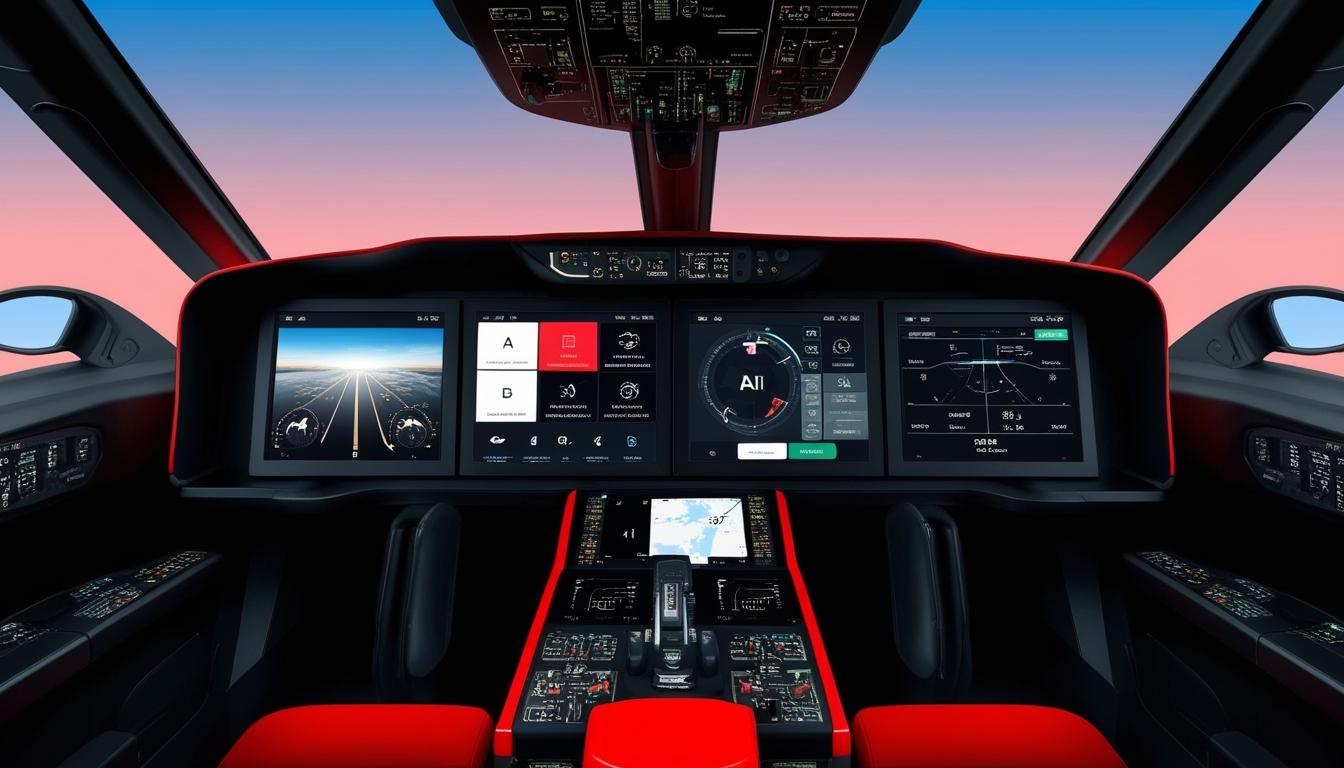At the 2025 Consumer Electronics Show (CES), Honeywell and NXP Semiconductors N.V. announced a significant expansion of their partnership aimed at advancing large-area display technologies and promoting autonomous flight in the aviation sector. Both companies have committed to the development of thinner, high-resolution screens designed to enhance visual clarity and improve system efficiency within next-generation cockpits. The collaboration seeks to simplify transitions to newer avionic technologies while extending the lifecycle of critical aviation systems, thereby providing long-term value to both aircraft manufacturers and operators.
This partnership will leverage Honeywell's extensive aerospace expertise alongside NXP's high-performance computing architecture to create AI-driven aerospace technology, which is expected to improve operational efficiency in flight planning and management. Both firms have indicated that this effort will facilitate quicker adaptation to new chipsets and technologies, supporting a more seamless integration into existing aviation infrastructures.
Vimal Kapur, chairman and CEO of Honeywell, remarked, "Our industrial domain expertise combined with NXP's best-in-class technology is a powerful accelerator for industrial leaders on the path to autonomy." He further noted that the collaboration aims to deliver differentiated solutions and services that will reshape the future of automation, generating significant outcomes for customers and stimulating Honeywell's growth.
NXP's architectural framework, which has foundations in the automotive sector, is designed to support autonomy in aviation through high-compute capabilities, integrated cybersecurity, and functional safety. These capabilities will be integrated into Honeywell Anthem, recognised as the industry’s first cloud-connected cockpit system. The ongoing collaboration has already seen NXP processors embedded in Honeywell's existing Building Management, Fire Safety, and Security offerings, with AI and machine learning set to play a larger role in future developments.
For their aerospace applications, Honeywell plans to utilise a variety of NXP processors, including the i.MX 8 applications processors and S32N super-integration processors. These components are anticipated to deliver high-performance, intelligent solutions tailored to different types of aircraft, with the goal of enhancing safety and maximising performance during flight and ground operations.
Kurt Sievers, President and CEO of NXP Semiconductors, asserted, "Bringing avionics closer to autonomous flight requires a unique combination of high-performance processing and AI, advanced connectivity and security, and functional safety." He described NXP’s range of solutions as an ideal match for Honeywell’s objectives in developing innovative and autonomous avionics systems capable of sensing, thinking, and acting.
One of the initial beneficiaries of this partnership is Vertical Aerospace, which is currently working on its piloted VX4 prototype eVTOL aircraft that incorporates Honeywell Anthem technology. Stuart Simpson, the CEO of Vertical Aerospace, commented on the collaboration, stating, "By fulfilling the promise of advanced air mobility, electric aircraft like the VX4 represent a bold vision for the future." He expressed enthusiasm about the potential improvements in pilot workload reduction and situational awareness that could result from integrating NXP’s advanced computing technologies.
As the aviation industry evolves towards greater automation and efficiency, this partnership between Honeywell and NXP reflects a forward-looking approach to meeting the demands of modern air travel, highlighting the importance of collaborative innovation in shaping the future of aerospace technology.
Source: Noah Wire Services
